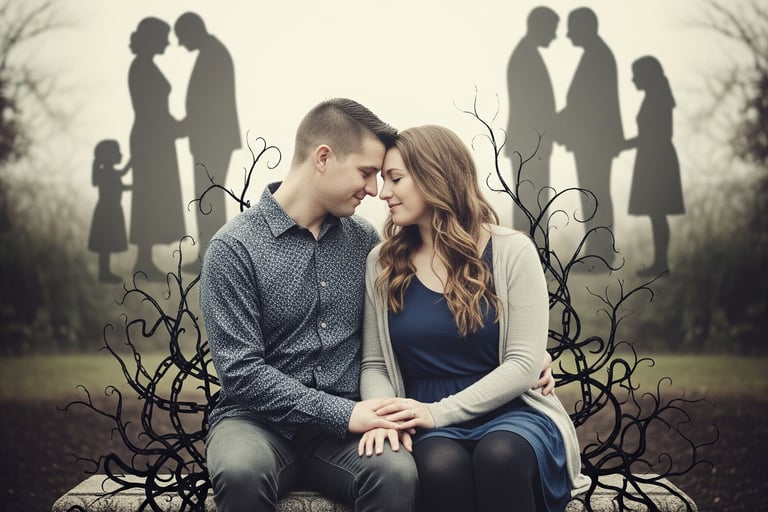The Unseen Influence: How Generational Trauma Might Be Impacting Your Relationship
Unpack the hidden history impacting your love life and learn to break free from generational patterns.


We often enter relationships with the hope of writing a new story—one filled with love, understanding, and safety. But sometimes, we find ourselves stuck in old patterns: withdrawing in conflict, people-pleasing, fearing abandonment, struggling to trust, or over-explaining our needs.
What if these responses aren’t just “your issues” or “their baggage,” but echoes from a much older story—one passed down through generations?
This is the subtle yet powerful impact of generational trauma, and it might be shaping your relationship more than you realize.
Generational trauma (also known as intergenerational or ancestral trauma) refers to emotional, psychological, and relational wounds passed down from one generation to the next. These aren’t just family stories or behaviors—they’re often deep-rooted survival mechanisms shaped by unresolved grief, abuse, war, systemic oppression, neglect, addiction, or dysfunctional family dynamics.
Even if you weren’t directly harmed, you may have inherited the coping mechanisms and emotional patterns of those who were.
What Is Generational Trauma?
Generational trauma doesn’t wear a name tag. It shows up as:
How It Shows Up in Relationships
Avoiding vulnerability because your parents never modeled emotional safety
Struggling with boundaries because saying “no” was seen as disrespectful in your family
Expecting abandonment because emotional unavailability was normal growing up
Becoming a caregiver or over-functioning partner to feel worthy
Reacting intensely to conflict due to unresolved chaos in your childhood home
Feeling responsible for others’ feelings—because love was conditional or inconsistent
These patterns often feel like “just the way I am” until we pause and ask: Where did I learn to respond this way?
In therapy, I often remind clients: many of our behaviors are not flaws, but adaptations. You might have learned to stay quiet, be hyper-independent, or avoid emotional closeness because it kept you safe once. The problem is, these protective strategies often get carried into adult relationships where they no longer serve us—but still shape how we give and receive love.
Trauma Responses Are Not Personality Traits
If you’ve ever felt like your reactions are “too much” or your partner doesn’t understand why certain things affect you so deeply, take a moment to ask:
Healing Begins with Awareness
Did I see healthy conflict resolution growing up?
Was I allowed to express emotions safely in my childhood?
Were boundaries respected in my family?
Was affection consistent, or did love feel earned?
These questions aren't about blaming your past, but understanding it. Because what is unspoken often repeats itself.
Name the Pattern, Not the Person
Instead of accusing or personalizing, try:
“I think I’ve learned to shut down during arguments because growing up, conflict always felt unsafe.”Practice Emotional Safety
Create an environment where both partners can share hard feelings without fear of judgment or punishment.Be Curious, Not Defensive
If your partner reacts strongly, ask:
“Is this response really about me, or could it be connected to something older?”Regulate Together
Learn how to co-regulate in stressful moments: breathing together, taking space mindfully, or using grounding techniques. This helps interrupt trauma responses in real-time.Seek Therapy
Individual or couples’ therapy can help identify these inherited patterns and offer tools to unlearn and rebuild healthier ways of relating.